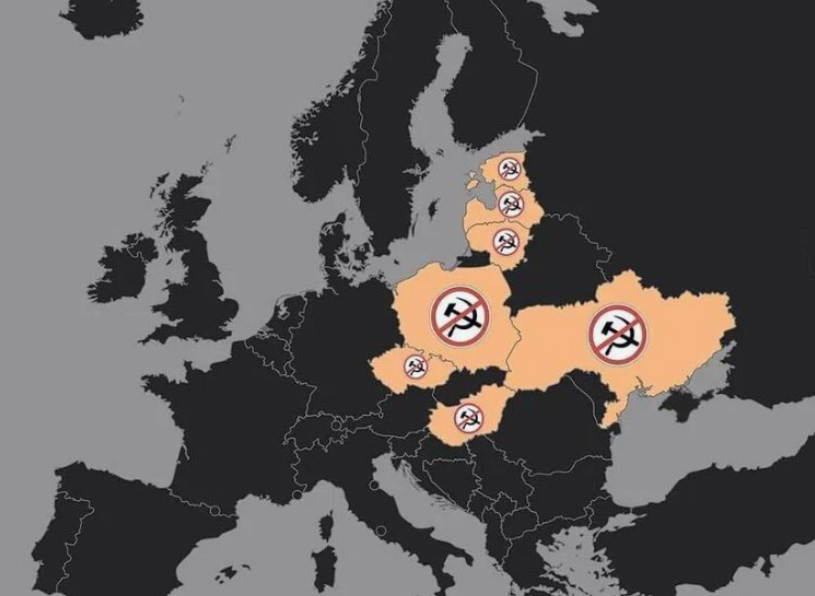While Yugonostalgia is still very much alive in Slovenia, and the National Assembly has not yet managed to adopt the European Parliament’s 2009 resolution on European Conscience and Totalitarianism, which condemns all totalitarian systems, including Nazism, fascism and communism, thanks to the left-wing of the political spectrum, there are countries in Europe where it is illegal to publicly display communist symbols.
Although it is well known that communist violence on the territory of the present-day Republic of Slovenia from the summer of 1941 to January 1946 resulted in the violent deaths of tens of thousands of civilians and prisoners of war, some people today still cannot do without the worshipping of the red star symbol at a wide variety of celebrations and events. But there are European countries that are very aware of the cruelty of communism and do not allow the public display of communist symbols – namely, Estonia, Latvia, Lithuania, Poland, Ukraine, the Czech Republic and Hungary.
“I am in favour of Slovenia banning the use of the red star or the coat of arms of a former totalitarian state, as well as the flag of the former state and anything else that reminds us in any way of the former totalitarian state by law,” former Minister of the Interior Dr Vinko Gorenak pointed out a few years ago, when a public debate was sparked about the use of totalitarian symbols in public.
Gorenak referred to the data of a research paper of the National Assembly, prepared on the 26th of June 2019 by the National Assembly researchers Marjana Križaj and Janez Blažič, pointing out, among other things, that in Latvia, the preamble of the constitution already states that “the Latvian nation did not recognise the occupying regimes, that it resisted them and restored its independence on the 4th of May 1990.” “The nation honours its independence and freedom fighters and condemns the communist and totalitarian regimes and their crimes.” The use of flags, coats of arms and other symbols and the singing of the anthem of the former Soviet Union, the Socialist Republic of Latvia or Nazi Germany is prohibited in accordance with their laws on public gatherings. The use of the five-pointed star, hammer and sickle is also prohibited. A similar law with exactly the same prohibitions was adopted in Lithuania in 2008.
The Polish Penal Code also prohibits the use of totalitarian symbols. This prohibits, among other things, the “dissemination, production, recording, import, purchase, possession, transport of recordings and printed matter or objects linked to fascist, communist and other totalitarian symbols.” In neighbouring Hungary, the Penal Code prohibits the display and public wearing of “the swastika, SS insignia, the lance cross (symbol of their organisation’s fascist nature), the hammer and sickle and the five-pointed red star.”
We have even abolished Remembrance Day for the Victims of Communism
Although the field discoveries of mass murder and burial sites in recent years have further exposed the sad extent of communist violence, our current government, under the leadership of Robert Golob, has gone so far as to abolish the National Remembrance Day for the Victims of Communist Violence out of the blue. The fact that by abolishing the said Remembrance Day for the Victims of Communist Violence, the government has symbolically denied the existence of these victims, reflecting a serious lack of respect for basic civilisational norms, was critically pointed out after the abolition by Slovenian educators, who are outraged and alarmed by the government’s actions. But the ruling class continues to ignore their calls.
A. H.


